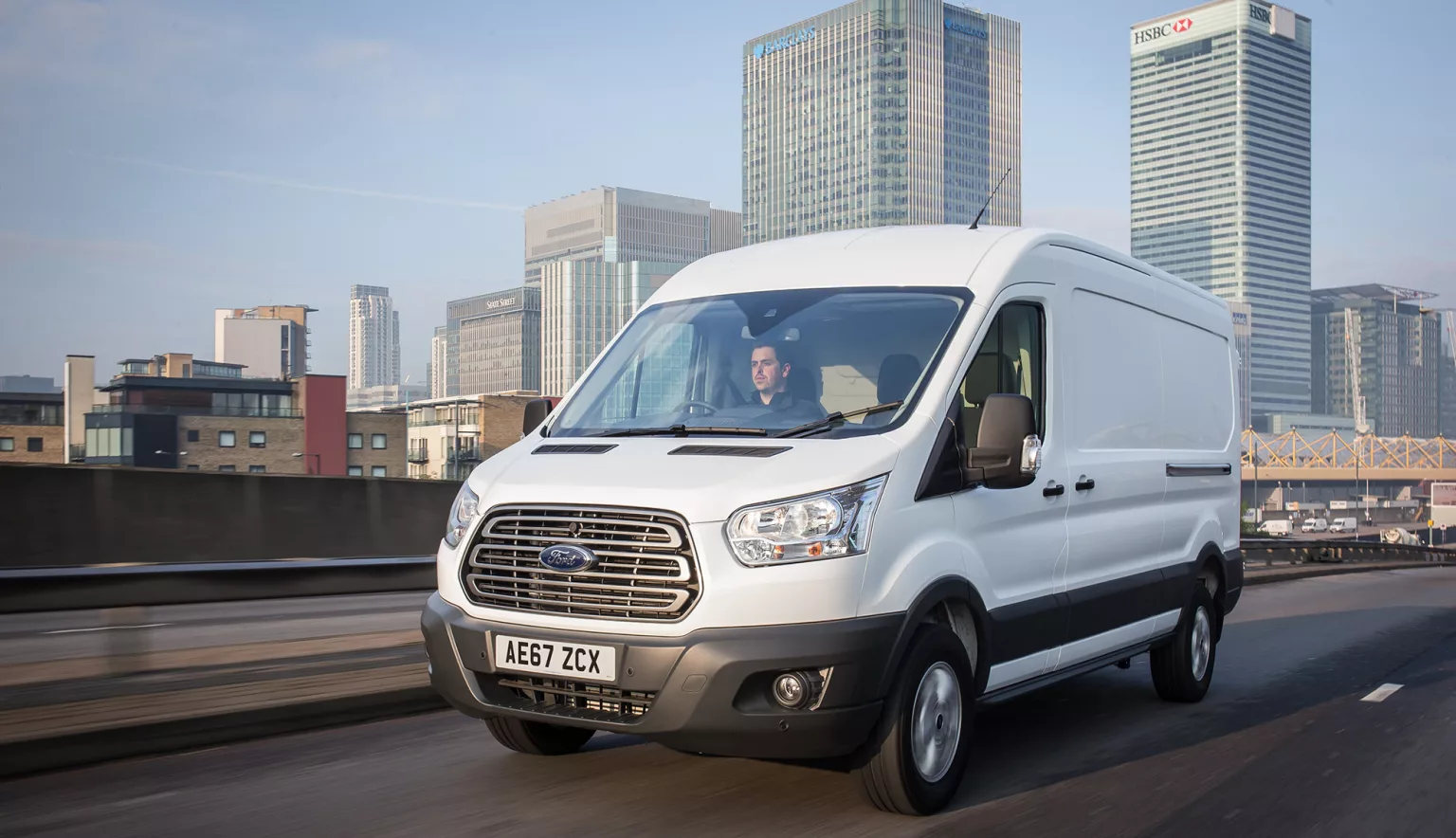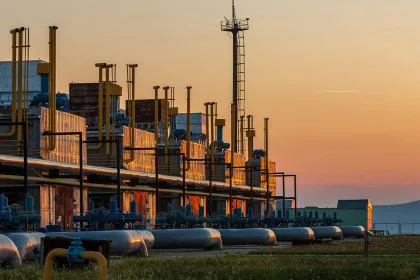For more than 50 years businesses have relied on Ford UK Transit to get the job done, and the Company is more determined than ever to maintain that tradition as the industry moves into the electric age.
KEEPING BRITAIN MOVING
To be an outstanding global entity in a given industry is one thing, but to then hone in on more localised success over a sustained period of time is a whole other prospect; and one that Ford has achieved unwaveringly for more than 100 years in the UK.
As the renowned automotive manufacturer’s third largest global market, accounting for around 30 percent of all sales in Europe, the UK has long served as a continental flagship for the Henry Ford-initiated pioneer. But by no means is this a one-way street of country empowering company; with the latter also enriching each presence point far beyond just its products offering.
In essence, and as the Company correctly and proudly states, “Ford has a social responsibility to keep Britain moving” and this responsibility is carried out on a daily basis across more than five million customers in England, Scotland, Wales and Northern Ireland.
“People rely on us consistently delivering class-leading products and services that allow them to run their lives and their businesses,” affirms and introduces Ford UK’s Chairman and Managing Director (MD), Andy Barratt. “Our position as the UK market leader is recognised and valued, with the Company frequently asked to comment – supporting Government and industry bodies – on key issues such as the future of UK automotive manufacturing, skills, research & development, and the air quality agenda.”
A facilitator of development and multi-industry growth – as well as simply customer satisfaction – Ford has held the mantle of passenger car sales leader in the UK for 40 consecutive years; and commercial vehicle sales leader for an even more impressive 51 years.
Additionally, a Ford model has been officially named as the best-selling car in the UK for the past 44 years, with its flagship Fiesta brand thriving as the country’s best-selling car for eight consecutive years.
More than just a sales hub, however, the UK and Ford have formed a harmonious partnership throughout the value chain; the former lending itself as a breeding ground to the latter, and the latter repaying such hospitality with its aforementioned market dominance and consumer offering.
“The UK plays a crucial role for Ford, globally, in terms of research & development and high-value manufacturing, as the centre of excellence for the engineering, design and manufacture of low-emission powertrains as well as the design and development of commercial vehicles (CV),” Barratt emphasises. “Ford is a leading partner in the UK’s APC (Advanced Propulsion Centre), a joint industry and Government initiative to help the UK maintain a leading position in defining the future of personal transport.”
A NATIONAL POSITIVE
The notion of “defining the future of personal transport” comes with its challenges and responsibilities of course, but never has this been more pressurised and important in the UK than in the present day, as uncertainties around Brexit and the UK’s economic connection to the wider world come to the fore.
It is a reassuring comfort therefore that a name like Ford has helped to bridge international trends, preferences and manufacturing ideologies for more than a century.
“In contrast to most European markets, UK new car registrations returned to pre-recession levels in 2014 and 2015, as confidence in the economy expanded and consumer demand for the latest models and technology grew consistently,” Barratt recalls. “Last year the UK passenger car and commercial vehicle markets continued to grow, but 2017 is seeing a decline amidst mounting concerns about the UK economy and uncertainties around Brexit.”
Thankfully, Ford’s presence in the UK is established enough to both ride this wave of uncertainty, and indeed to remain a national positive amid a backdrop of largely negative business connotations.
At present, the Company can boast around the country: 110 transit centres; 187 transit service dealers, 456 car dealerships; 69 FordStores; and 472 sales points. Meanwhile, from an employment perspective; Warley, Dagenham, Dunton, Bridgend, Southampton, Halewood and Daventry are all graced with the familiar Ford logo, and are also complemented by a 788-strong Ford Financial division, and a TrustFord UK (Ford Retail) workforce of more than 3,000.
EASY AND ENJOYABLE
“Headquartered in Brentwood, Essex, we have more than 14,000 people employed across our UK operations, which includes TrustFord, a dedicated Ford dealer group,” Barratt affirms in defining the sheer scale that Ford enjoys in the UK. “Our research & development centre, the Dunton Technical Centre, also in Essex, is one of the largest of its type in the UK.
“Home to more than 4,000 highly skilled designers, engineers and support staff, it is Ford’s global Centre of Excellence for Powertrain and Commercial Vehicle engineering and design.”
In terms of the Company’s manufacturing footprint in the UK there are two engine plants; Bridgend, in South Wales, and Dagenham. Between the two, there is the capacity to produce more than two million engines a year; a target that reached almost 75 percent accountability in 2016 when Ford UK’s plants rolled more than 1.4 million engines off the production line.
“85 percent of the engines built were exported,” Barratt adds, “with a combined export value exceeding £1 billion.”
The MD continues: “In 2014 we also began a transformation of the customer experience with the creation of FordStores, which offer a new way to shop and experience Ford.
“Designed to make buying a new Ford easy and enjoyable, the dealerships arrange vehicles in distinct zones and, with the growth of personalisation, customers can use our life-size configurator. The technology allows near life-size configurations to be shown on an HD Power Wall, viewable inside and out, from all angles to ensure that it’s exactly what they want.”
BENCHMARK GLOBAL BEST PRACTICES
It is this customer-oriented ethos that has driven Ford’s continuous improvement over the years, both in the passenger car sales and commercial vehicle sales domains. The latter in particular has seen a doubling of Ford’s CV sales since 2011, coinciding with the introduction of the Ford Transit Centre.
The word ‘transit’ is so intrinsically linked to the Ford name, and this latest unveiling has capitalised on the brand’s popularity through the creation of a one-stop shop for commercial vehicle customers.
Barratt details: “With repairs, maintenance and support all under one roof, plus extended opening hours for greater flexibility, Transit Centres are designed to maximise the productivity and efficiency of people who rely on our products to run their businesses.
“We also rolled out our Ford Mobile Service programme, nationwide, following a successful trial around Greater London.”
The programme was initially developed to minimise disruption to fleet operators by reducing vehicle down time, and already the Company’s initiative has now evolved to comprise more than 100 specially-liveried Ford Transit units; all equipped to handle a wide range of servicing, maintenance and repairs.
“It means, for example, a plastering company or landscaping business can continue to earn money on site while we service their van in the car park,” Barratt explains.
‘Continuous improvement’ in this sense, and indeed in most Ford applications, focuses largely on a refinement of service and customer interaction as opposed to simply improving internal processes and end products. In essence, all aforementioned factors are intertwined, with the latter manufacturing enhancements driven by the commitment to meet – and exceed – customer needs and expectations.
The One Ford strategy is a further example of this bridging of the manufacturer-consumer gap, as well as highlighting the advantage that Ford has as a truly global entity.
Barratt explains: “The One Ford strategy has allowed us to benchmark global best practices and leverage our current portfolio; bringing products like Edge, Mustang and KA+ to the UK.
“Similarly, it’s enabled us to export our expertise with the introduction of the Transit, designed and engineered here in the UK, and now launched in the US.”
SIMPLY OUTSTANDING
Just as 100-plus years of industry development lends itself to enhanced modern-day operational excellence, the resultant continuous improvement strategies have similarly catalysed ongoing product improvements; completing a successful, and profitable, cycle.
In the UK, this process is epitomised by the evolution of the Fiesta which has been ever-popular on the country’s roads since 1976 in different guises; each model further cementing its status as a national automotive icon.
“As the UK’s best-selling car ever, and the market leader for the past eight years consecutively, the Fiesta has to be the product that has driven the Company forward in the UK,” Barratt affirms. “The very first Fiesta was groundbreaking – as the first front-wheel drive Ford, the first transverse-engined Ford, and the smallest capacity Ford since the 1950s with 957cc and 1,117cc engines – and it quickly became Europe’s fastest-selling car.
“Every successive Fiesta model has improved on the one before, and this year we have launched an all-new Fiesta range. Not only it is it our most technologically-advanced Fiesta ever; it is also the most expansive model range. From the sporty looking ST-Line and luxurious Vignale models, to the hotly anticipated ST and – for the first time in its history – a crossover model: the Fiesta Active.”
The latter milestone model delivers “rugged SUV-inspired styling including raised ride height” and will arrive in the UK in 2018.
“The all-new Fiesta is simply outstanding,” Barratt continues. “It has the most sophisticated range of driver assistance features ever in a small volume car in Europe and is the first Ford in Europe to benefit from computer simulation crash tests of a complete vehicle.
“It is also the first Ford vehicle to feature an exclusive, premium B&O PLAY sound system, and for the first time offers an opening panoramic glass roof.
“It is part of the most comprehensive Fiesta range ever, meeting growing consumer demand for greater choice and more personalisation. Put simply, it is a brilliant new car, bringing style, technology and refinement that has never been seen in a small car before.”
DELIVERING PURE DRIVING PLEASURE
As always, the new Fiesta models reflect the ongoing research & development that occurs behind the scenes at Ford, but more poignantly epitomise the Company’s dedication to customer satisfaction; something which also shines through its luxurious Vignale range.
The Vignale’s recent introduction was specifically in response to the growth in customer demand for the highest specification series’ available; Barratt noting that buyer feedback regularly called for an even higher spec and service.
“The Mondeo Vignale was our first offering and we’ve added it to the S-MAX, Edge, Galaxy, Kuga and now the all-new Fiesta,” he notes. “We know that buyers consider high levels of customer service a key difference between a mainstream and upmarket experience, while showroom appearance and quality of hospitality are factors that influence customer expectations.”
The past two years has seen Ford launch its widest ever range of products. The iconic and oft lusted-after Mustang finally arrived in the UK for the first time in its 50-year history; complete with right-hand drive for the full UK experience.
In addition, the Company also launched its flagship SUV, the Edge; laden with modern driver-assist technologies.
Barratt adds: “We also have a line-up of vehicles that truly demonstrate our performance prowess and innovation. The all-new Ford GT and the third generation Focus RS are two cars that showcase our strength and credentials for delivering pure driving pleasure; truly exemplifying the Ford DNA.
“More recently we announced the plan to introduce a new plug-in hybrid electric (PHEV) Transit Custom van, designed to help improve local air quality by running solely on electric power for the majority of city journeys.”
The ‘electric age’ represents the next era for global automotive manufacturing so it comes as no surprise that Ford is plotting its route into the sub-sector with great care.
To this end, the PHEV Transit Custom van is scheduled for volume production in 2019, as part of the wider Company’s global promise to provide customers with not just access to the electric vehicle world; but affordable and realistic access to this new technology.
“Ford is the first volume manufacturer to offer PHEV technology in this segment and the vehicles will start testing at the end of this year,” Barratt says. “The London fleet trial project is supported by Transport for London, and features a cross-section of city-based businesses, including Metropolitan Police, British Gas and Clancy Plant, that will integrate the vans into their day-to-day operations.”
EASE CONGESTION AND BROADEN MOBILITY
Prior to production, Ford has gone to extensive lengths to analyse the significance of PHEV Transits in the UK, kick-started by the trial of 20 units mounted with an advanced telematics system.
Subsequently gaining an understanding of the benefits that electric vehicles present, and how these benefits can be further maximised, the system will provide real-time data on the vans’ performance; ultimately ensuring that Ford fully understands each customer’s needs.
“We, of course, continually monitor trends and adapt to the needs of consumers and anticipate future customer requirements,” Barratt emphasises to this end. “The growth in SUVs, for instance, continues and we’ve strengthened our product line-up with EcoSport, Kuga and Edge, which will be joined by the Fiesta Active next year.”
Technology also – predictably, yet importantly – continues to play a crucial role in Ford’s continuous improvement psyche; with special emphasis now placed on making “smart and connected” vehicles.
Barratt continues: “We are pursuing more transportation research partnerships to look at the cities of the future, and how people, goods and services will move in the future.
“We continue to expand our resources in autonomous vehicle research, with the recent announcement of our partnership with Lyft and the $1 billion investment in Argo AI combining Ford’s autonomous vehicle development expertise with Argo AI’s robotics experience and artificial intelligence software to further advance autonomous vehicles.”
Ford has also opened a new Ford Smart Mobility Innovation Office on the former Olympic Park at Stratford in London.
Once again addressing the trend of smart mobility and advanced technologies, the new office has provided a dedicated team of ford specialists – led by smart mobility Director, Sarah-Jayne Williams – easy access to world-class digital companies, leading academic institutions, nimble start-ups, and existing partners.
“Ford continues to work on projects with the city to help improve air quality, ease congestion and broaden mobility for Londoners,” Barratt affirms. “Having an office in London offers Ford close proximity to its projects and partners; including the plug-in hybrid Transit trial due to launch later this year.”
CLEAR BENEFITS TO LOCAL COMMUNITIES
The concept of ‘responsibility’ can often be seen as a tenuous one in the industrial world, with financial implications and business success understandably taking precedence for the majority of SMEs and even larger, but less-established businesses.
For Ford though, once again, the ability to act responsibly in the UK – and indeed across its entire footprint – has been integral to its longevity; whether as a natural contributor to the country’s talent pool and engineering acumen, or through less industrial-focused initiatives that are often associated with the Ford of Britain Trust.
Barratt describes: “A wide number of initiatives are supported through the Ford of Britain Trust, which was established in 1975 and provides funding for local charities and NGOs.
“We pay special attention to projects focusing on education, the environment, children, the disabled, youth activities, and projects that provide clear benefits to the local communities close to our UK locations.”
One recent example showcases Ford UK’s partnership with Primary Engineer, a non-profit organisation that runs a variety of engineering-based courses for children of primary school age. Collaborating with 20 schools across Essex, Ford’s engineers work with each to provide teacher and project support to help make the idea of engineering fun and exciting to inspire the next generation of industrial artisans.
“Another example is Ford’s work with Enactus, a global non-profit organisation and community of students, academics and business leaders,” Barratt adds. “In the UK, the Ford UK Innovation Challenge supports young people by encouraging social entrepreneurship through the implementation of sustainable community solutions.
“It’s also part of the global Ford College Community Challenge (Ford C3), a programme from Ford Motor Company Fund, the philanthropic arm of the Company.”
The Ford Fund also provides Ford Driving Skills for Life (DSFL), a global advanced safety training programme specifically designed for newly licensed drives, aged 18-24.
Barratt comments: “The free training helps young drivers to develop skills in four key areas: hazard recognition, speed and space awareness, vehicle handling, and driver distraction including the simulated effects of drugs and alcohol.”
DOING THINGS THE RIGHT WAY
Such corporate social responsibility adherence – like most aspects of Ford’s operations – hasn’t gone unnoticed, and in 2017, Ethisphere Institute named the Company in its list of the World’s Most Ethical Companies for the eighth year in a row.
Recognising not only Ford’s personnel and community enrichment initiatives, the accolade also sheds light on the Company’s ongoing commitment to environmental sustainability.
Inevitably set to strengthen even more in the coming years through the inception of its electric range of vehicles, Ford has already proven itself as an eco-pioneer; especially by virtue of its supply chain management strategy.
Driven by the Company’s role within the ‘Partnership for a Cleaner Environment’ (PACE) programme, Ford proudly operates as en entity committed to creating a better world.
“As a company, it’s important that we make quality products and minimise the impact on the environment by doing things the right way,” said Mary Wroten, senior manager of Ford Supply Chain Sustainability upon the 2017 unveiling by the Ethisphere Institute. “Having suppliers that want to share that responsibility shows we can work together to reduce our collective environmental footprint, while still continuing to deliver great products.”
PACE encourages consistency in best practices as well as supplier transparency and sustainability; subsequently working collaboratively throughout the value chain to save an estimated 550 million gallons of water over the next five years according to 2016 data.
To play its part, Ford provides suppliers with a ‘PACE toolkit’ which consists of 350 leading practices across areas of energy, water, air emissions and waste.
One such supplier, DENSO has participated in the PACE initiative alongside FORD in 38 countries since 2014 and the Company’s Senior Manager for Safety, Health and Environment in North America, Jim Laney further commented on the relationship and vision during this year’s unveiling.
“We are serious about protecting lives and preserving the planet, and sharing best practices with Ford helps further that mission to sustain the environment globally,” he said.
PUTTING CUSTOMERS AT THE HEART
Wider industry involvement and collaboration has been pivotal to Ford’s knowledge expansion and its influence on the sector over the years, and has been compounded in recent times by becoming the first automotive manufacturer to join the Electronic Industry Citizenship Coalition (“a non-profit organisation dedicated to improving social, environmental and ethical conditions in their members’ global supply chains”).
Such adherence to sustainability – and environmental enrichment especially – can largely be attributed to Ford’s ‘Blueprint for the Road’ motto which homes in on outstanding fuel economy and the reduction of greenhouse gas emissions from its products.
“They’re very much part of our corporate responsibility policy, too,” Ford UK elaborates on its website.” So we’re always researching, evaluating and developing initiatives that create value; value that’s consistent with the long-term preservation and enhancement of environmental, social and financial capital. To define these actions and incorporate many other programmes, we established our ‘Blueprint for Sustainability.’
“This Blueprint encapsulates our sustainability strategy as a whole, reflecting the fact that sustainability issues are part of a complex system that interconnects our products, plants, people and the communities in which we operate.
“As well as being the right thing to do, sustainability is a core part of Ford’s business strategy. With smart and sustainable manufacturing solutions and an exciting range of technologically advanced, fuel-efficient vehicles, we’re creating foundations that will ensure our long-term success in Europe.”
By virtue of this philosophy, Ford also enforces its core, initial vision to bring long-term benefits and satisfaction to a customer base that has become so familiar with the brand’s innovation and influence over the decades.
And as the business now looks forward to replicating its dedication to development over the coming years, its UK operations will continue to serve as an example of Ford’s global competitive advantage.
“Our overarching strategy is putting the customer at the heart of everything we do. Our dealer network in Britain is one of the strongest in the world and remains a competitive advantage,” Barratt concludes. “[In the coming years] there will certainly be growth in digital and connectivity trends with the likes of car-to-car and car-to infrastructure communications. Increasing demand for the development and implementation of smart mobility solutions that are right for the consumer will certainly shape and transform our business.
“As an industry we therefore need to ensure that manufacturers and retailers are positioned to meet the needs in a rapidly changing world, where traditional models may no longer be valid.
“As such, customers will move even further into the heart of everything we do.”





























